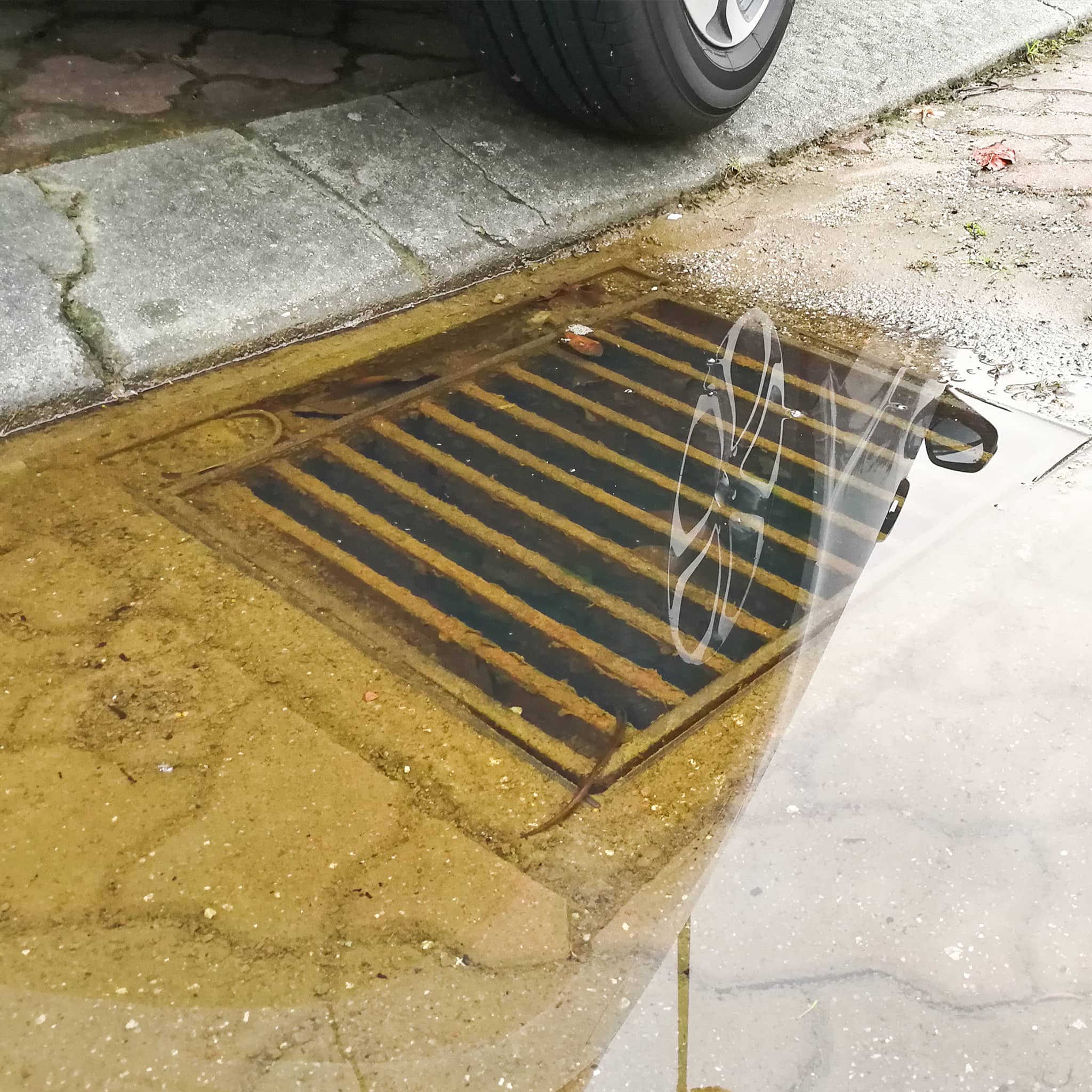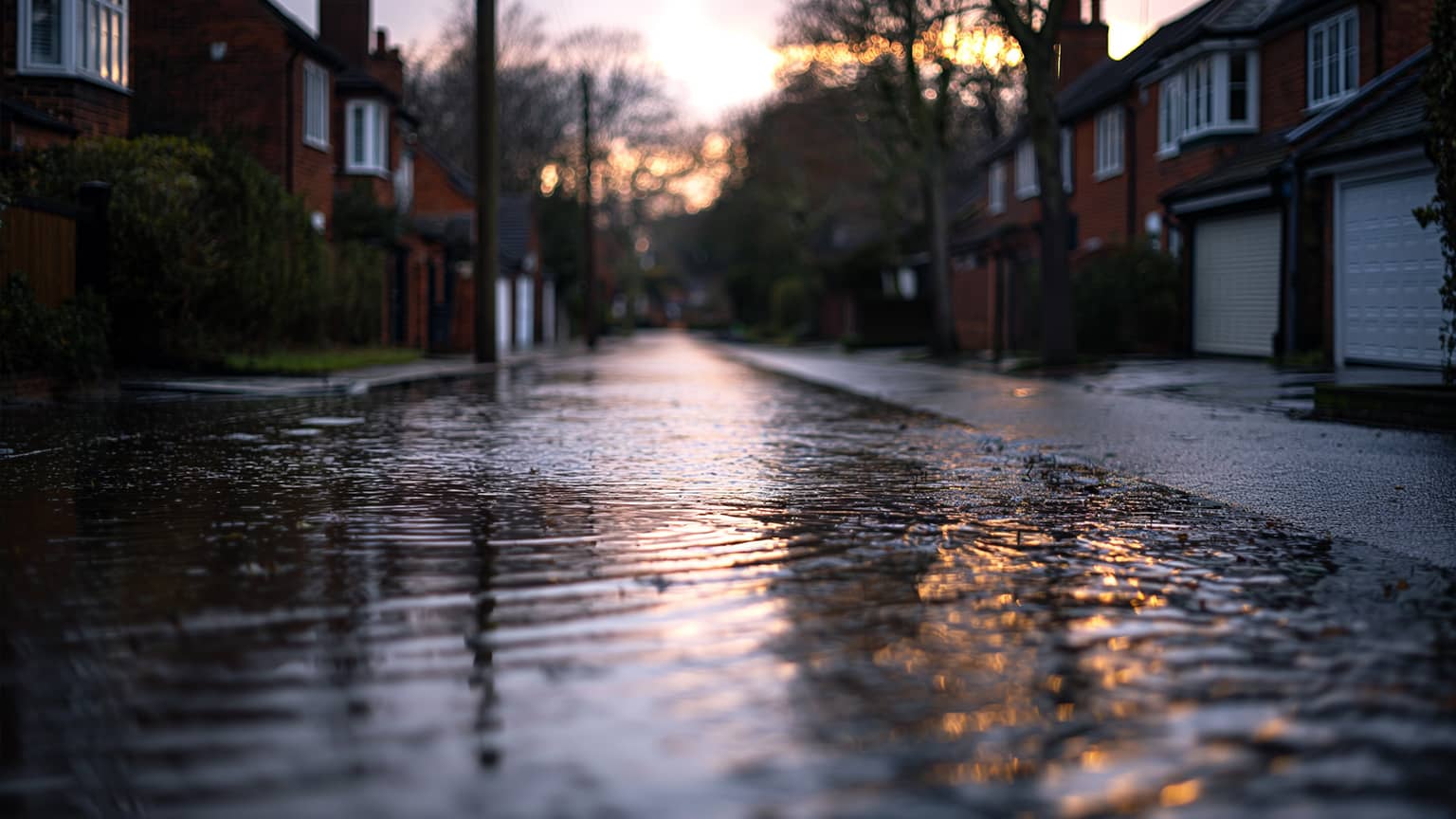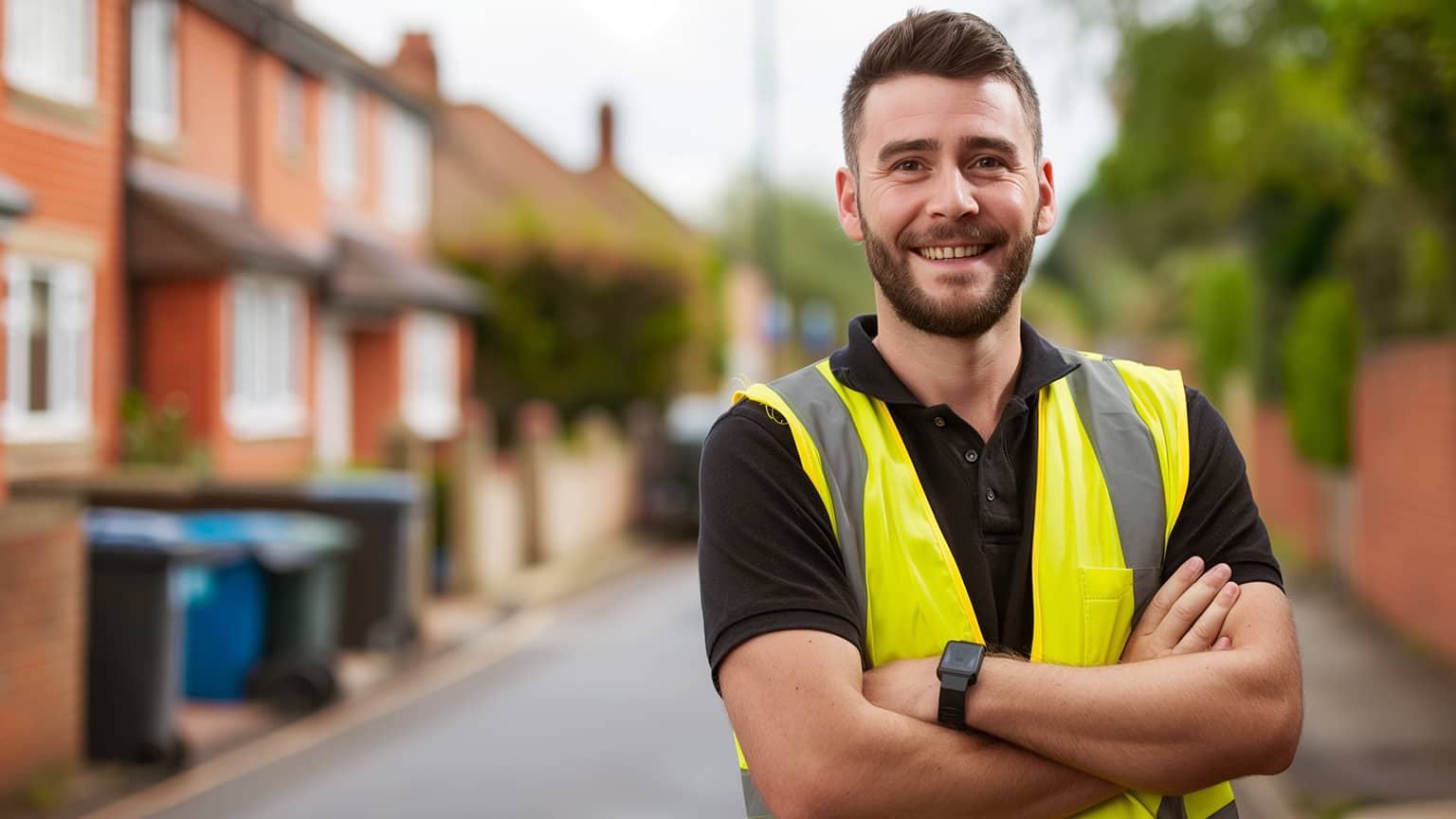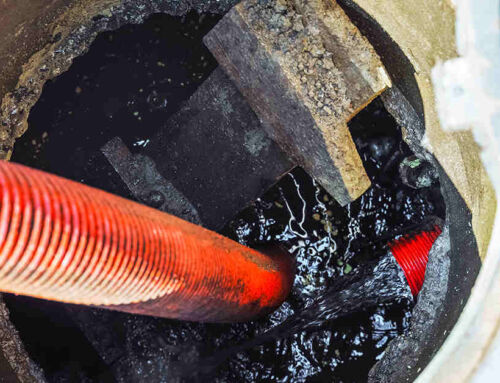Jump to…
Experience the Unblockers Difference
No call-out charges
Emergency response call-outs available
Available anytime 24/7
Expert, local engineers
Fixed price, no hidden charges

Dealing with a blocked or leaking manhole is not only a nuisance but can also pose significant health and safety risks. Manhole blockages and leaks can lead to unpleasant odours, potential property damage, and even pose a threat to the public health and environment. Recognising the severity of these issues is crucial in determining the right approach to resolve them.
Minor problems might be addressed with careful DIY methods, but more serious or complex issues often require professional intervention. The risks associated with incorrect handling of manhole issues can include exacerbating the problem or causing injury, so it’s essential to assess the situation accurately.
If you’re unsure about the severity of your manhole issue or lack the tools and expertise to handle it safely, seeking professional advice is the best course of action. At our service, we offer free on-site quotes to accurately assess the nature of the blockage or leak. Our team of experts is equipped to provide a comprehensive evaluation, offering effective solutions tailored to your specific situation. Whether it’s a simple blockage removal or more complex repairs, we ensure a safe and thorough resolution to your manhole problems.
Contact us today for a hassle-free assessment and expert resolution of your manhole issues.
Key Points
Common Causes of Manhole Blockages and Leaks
Manhole blockages and leaks can stem from a myriad of causes, ranging from environmental factors to structural issues. Understanding these various causes is key to effectively addressing and preventing them. Environmental elements like heavy rainfall can lead to overflows, while human-made factors such as improper disposal of waste can contribute significantly to blockages. Additionally, structural problems within the manhole or connected sewer systems can lead to both blockages and leaks. In this section, we’ll explore these diverse factors in more detail, providing insights into the common reasons behind manhole issues and highlighting the importance of regular maintenance and proper usage to prevent such occurrences.
Structural Damage
Structural damage to manholes is a significant factor in the occurrence of leaks. Over time, manholes can suffer from various forms of deterioration, including cracks, fractures, and erosion in their walls or coverings. These damages might be a result of general wear and tear, increased traffic load on the surface above, or environmental conditions such as freeze-thaw cycles in colder climates.
Cracks and other structural weaknesses allow water to seep into the manhole, leading to leaks. This infiltration can be particularly problematic during heavy rainfall, as the water entering the manhole can carry with it soil and debris, exacerbating the blockage and leakage problems. In some cases, the structural damage can also disrupt the integrity of the connecting sewer lines, leading to further complications in the drainage system.
Regular inspections and maintenance are essential to identify and address any signs of structural damage early on. Timely repairs, such as patching cracks or reinforcing weakened areas, can prevent minor issues from developing into major leaks or blockages. Neglecting these problems not only worsens the situation but can also lead to more extensive and costly repairs in the future.
Pipe Connection Issues
Issues with the pipes connected to manholes are a common cause of both blockages and leaks. These problems can arise from several scenarios:
Misaligned Pipes: Over time, ground movement, heavy traffic above ground, or nearby construction activities can cause pipes to shift or become misaligned. This misalignment can restrict the flow of waste and water, leading to blockages. Additionally, misaligned pipes can create gaps through which water can escape, causing leaks into the surrounding soil.
Pipe Corrosion or Damage: Pipes, especially older ones made of materials prone to corrosion or degradation, can weaken and break down over time. Corrosion or physical damage to these pipes can result in leaks, where water escapes the system, or blockages, if the pipe collapses or restricts the flow.
Joint Failures: The joints connecting different sections of pipes are critical points in the sewer system. If these joints are improperly installed, become loose, or erode over time, they can lead to leaks at the connection points. Furthermore, joint failures can allow roots and debris to enter the pipes, causing blockages.
Sediment Build-up: In some cases, the issue might not be with the physical structure of the pipes but rather what’s inside them. Sediment, grease, or other materials can accumulate at connection points, gradually leading to significant blockages.
Addressing pipe connection issues often requires professional assessment and intervention. Repairing or replacing damaged pipes, realigning connections, and regularly cleaning the pipes to prevent build-up are essential steps in ensuring the proper functioning of the manhole and connected sewer system. Regular inspections can help identify these issues early, preventing more severe problems down the line.
Root Infiltration
Determining the exact cause and severity of a sink blockage can sometimes be challenging. If you’ve tried conventional methods without success, or if you suspect a more serious issue, it’s wise to seek professional advice. At Unblockers, we offer free on-site quotes to accurately diagnose and address your sink blockage problems. Our experts come equipped with the necessary tools and expertise to provide efficient and effective solutions, ensuring your sink returns to optimal functionality.
H3: Overflow from Drainage Systems
Overflow from nearby drainage systems can significantly impact manholes. During heavy rainfall or flooding, drainage systems can become overwhelmed, causing excess water to back up into manholes. This overflow can lead to overflows and leaks, especially if the manhole or connecting pipes have any existing vulnerabilities. Regular maintenance of drainage systems and ensuring proper flow capacity are crucial to prevent such overflow issues.

DIY Solutions for Blocked or Leaking Manholes
Overflow from Drainage Systems
When facing minor manhole issues, some DIY solutions can be effective. However, it’s crucial to prioritise safety and recognise when a problem is beyond DIY scope and requires professional assistance. DIY methods can offer temporary relief for less severe blockages or leaks but should be approached with caution. In this section, we’ll explore safe and practical DIY strategies for addressing basic manhole concerns, while also highlighting the signs that indicate the need for professional intervention.
Safety Precautions
Ensuring safety is paramount when addressing manhole issues. Before attempting any DIY measures:
Wear Protective Gear: Use gloves, safety goggles, and sturdy footwear.
Ventilate the Area: Ensure proper ventilation to avoid hazardous gas buildup.
Avoid Working Alone: Have someone nearby for assistance or in case of emergencies.
Beware of Electrical Hazards: Be cautious of any electrical lines or equipment.
Don’t Force Entry: If a manhole cover is stuck, don’t attempt forceful entry; it may require specialist tools.
Recognise Your Limits: If the issue seems extensive or risky, it’s safer to call professionals.
Removing Debris
To safely remove accessible debris from a manhole:
Use a Grabber Tool: Utilise a long-handled grabber tool to reach and remove debris without needing to lean into the manhole.
Avoid Direct Contact: Keep a safe distance to avoid direct contact with potentially hazardous waste.
Dispose of Waste Properly: Ensure removed debris is disposed of according to local council guidelines to prevent environmental contamination.
Seal the Manhole: After clearing, securely replace the manhole cover to prevent accidents.
Temporary Sealing Techniques
For managing minor leaks in manholes temporarily:
Waterproof Tape: Use heavy-duty, waterproof tape to seal small cracks or gaps temporarily.
Sealant Compounds: Apply commercial sealant compounds designed for outdoor use and water exposure.
Sandbags: For surface-level leaks, strategically place sandbags around the manhole to divert water flow and reduce pressure.
Regular Monitoring: Keep a close eye on the temporary fix to ensure it holds until professional repairs can be made.
Professional Services for Manhole Issues
When DIY solutions prove insufficient or unsafe for manhole issues, it’s time to turn to professional services. These experts offer the necessary skills, experience, and equipment to safely and effectively address more complex problems. Professional intervention is essential for thorough assessment and repair, especially for issues beyond the scope of typical household fixes. They ensure not only the immediate resolution of the problem but also help in identifying and rectifying underlying issues, preventing future occurrences. In this section, we’ll discuss the value of professional expertise in dealing with manhole blockages and leaks.
Emergency Manhole Services
Emergency manhole services are crucial for urgent and severe issues, such as major blockages leading to overflows or significant leaks posing safety hazards. These services typically offer:
24/7 Availability: Immediate response at any time to address critical issues.
Specialised Equipment: Use of advanced tools to quickly diagnose and resolve complex problems.
Expert Personnel: Skilled professionals trained to handle hazardous situations safely and efficiently.
Comprehensive Solutions: Not just quick fixes, but thorough resolutions to prevent recurrence of the problem.
Drainage System Specialists
Drainage system specialists are professionals equipped to handle broader issues in the drainage network that may be linked to manhole problems. They offer:
Comprehensive Analysis: A thorough evaluation of the entire drainage system to identify root causes of manhole issues.
Advanced Solutions: Utilising specialised techniques and equipment to address complex drainage problems.
System Upgrades: Recommendations and implementation of system improvements to prevent future issues.
Collaborative Approach: Working alongside local authorities or environmental agencies, if necessary, for large-scale drainage concerns.
Preventive Measures for Manhole Maintenance
Regular maintenance is key to preventing manhole blockages and leaks. This proactive approach helps in identifying potential issues before they escalate into major problems. Effective maintenance involves routine inspections, timely cleaning, and addressing minor damages promptly. This section will explore various preventive strategies to ensure the longevity and proper functioning of manhole systems, thus safeguarding against the inconvenience and hazards of unexpected blockages or leaks.
Regular Inspections
Using Boiling Water for Blockages: Boiling water can be effective in dissolving grease and soap build-up. Pour a kettle of boiling water down the drain slowly in stages, allowing the hot water to work between each pour.
Regular inspections are crucial in preventing manhole issues. They should ideally be conducted:
Bi-Annually: At least twice a year, more frequently in areas prone to heavy rain or flooding.
Post-Extreme Weather: After heavy rains, floods, or freeze-thaw cycles, which can exacerbate existing issues or create new ones.
By Professionals: While surface checks can be done by property owners, deeper inspections should be carried out by specialists with the right tools and expertise.
Documentation: Keeping records of each inspection can help track changes or emerging issues over time.
Debris Management
Effective management of surrounding debris is vital in reducing the risk of manhole blockages:
Regular Clearing: Frequently remove leaves, litter, and other debris from around the manhole cover to prevent them from entering the system.
Landscaping Maintenance: Keep nearby trees and bushes trimmed to minimise leaf fall and root growth near the manhole.
Drain Grate Cleaning: Ensure any nearby drain grates are clear of debris to maintain proper water flow.
Public Awareness: Encourage community responsibility in keeping the area around manholes clean, especially in public or shared spaces.
Landscaping Considerations
Proper landscaping management is key to preventing root infiltration into manholes:
Tree Placement: Avoid planting large trees near manholes. If trees are already present, monitor their growth closely.
Root Barriers: Consider installing root barriers around manholes to prevent roots from growing into them.
Regular Pruning: Regularly prune tree roots that pose a risk to manhole integrity.
Choose Manhole-Friendly Plants: Opt for shallow-rooted plants or grasses near manholes to minimise root intrusion risks.
Legal and Environmental Considerations
Addressing manhole issues extends beyond practical repairs and maintenance, encompassing important legal and environmental considerations. It’s essential to be aware of and comply with regulatory guidelines to ensure safe and lawful handling of manhole maintenance and repairs. Additionally, understanding the environmental impact of these activities is crucial for sustainable practices. This section highlights the key legal obligations and environmental factors to consider, ensuring responsible and compliant management of manhole-related work.
Compliance with Regulations
Adhering to local regulations is essential in manhole maintenance and repair:
Understand Local Laws: Familiarise yourself with local council regulations related to manhole work to ensure compliance.
Permits and Approvals: Obtain necessary permits before starting any significant repair or maintenance work.
Safety Standards: Ensure all activities meet the local safety standards to protect workers and the public.
Environmental Regulations: Be aware of environmental regulations, especially regarding waste disposal and chemical use.
Environmental Impact of Manhole Leaks
Leaking manholes can have significant environmental impacts:
Contamination Risks: Leaks can lead to sewage seeping into the ground, risking contamination of soil and water sources.
Ecosystem Harm: Contaminants from leaks can harm local ecosystems, affecting plant and animal life.
Health Hazards: There’s a risk to public health due to potential exposure to harmful substances.
Timely Intervention: Prompt action is crucial to mitigate these risks and protect the environment.
Safe Disposal of Waste
For the legal and safe disposal of waste from manholes:
Follow Local Guidelines: Adhere to your local council’s regulations for waste disposal, especially for hazardous materials.
Use Authorised Facilities: Dispose of waste at authorised treatment facilities or disposal sites.
Document Disposal: Keep records of the disposal process for compliance and auditing purposes.
Safety Precautions: Handle waste using appropriate safety gear and procedures to minimise health risks.

Summary
The article discusses effective solutions and guidance for managing blocked or leaking manholes, emphasising the potential health and safety risks associated with these issues. It outlines the importance of accurately assessing the severity of manhole problems to determine the right approach, ranging from DIY methods for minor issues to professional intervention for more complex situations.
The article explores common causes of blockages and leaks, such as environmental factors, structural damage, pipe connection issues, root infiltration, and drainage system overflow. It provides insights into DIY solutions, highlighting safety precautions and temporary measures to address minor leaks and blockages.
Additionally, the necessity of professional services for dealing with more severe or urgent manhole issues is stressed, offering expertise in emergency responses, structural repairs, and comprehensive drainage system solutions.
Preventive measures, including regular inspections, debris management, and landscaping considerations, are recommended to maintain manhole integrity. Finally, the article touches on legal and environmental considerations, underscoring the importance of compliance with regulations, the environmental impact of leaks, and the safe disposal of waste to ensure responsible manhole management.
Related Articles
READY TO MAKE YOUR ENQUIRY?
Get a quote for a drainage callout
Get a quote for a drainage callout
We have drainage engineers in your area now offering availability today.
Just leave a few details and our friendly drainage service team will call you right back.
We have drainage engineers in your area now offering availability today.
Just leave a few details and our friendly drainage service team will call you right back.
"*" indicates required fields

Need to speak to us right away? We have local engineers available now. Call 0808 303 0050
“Outstanding Service & Fast Repair”





